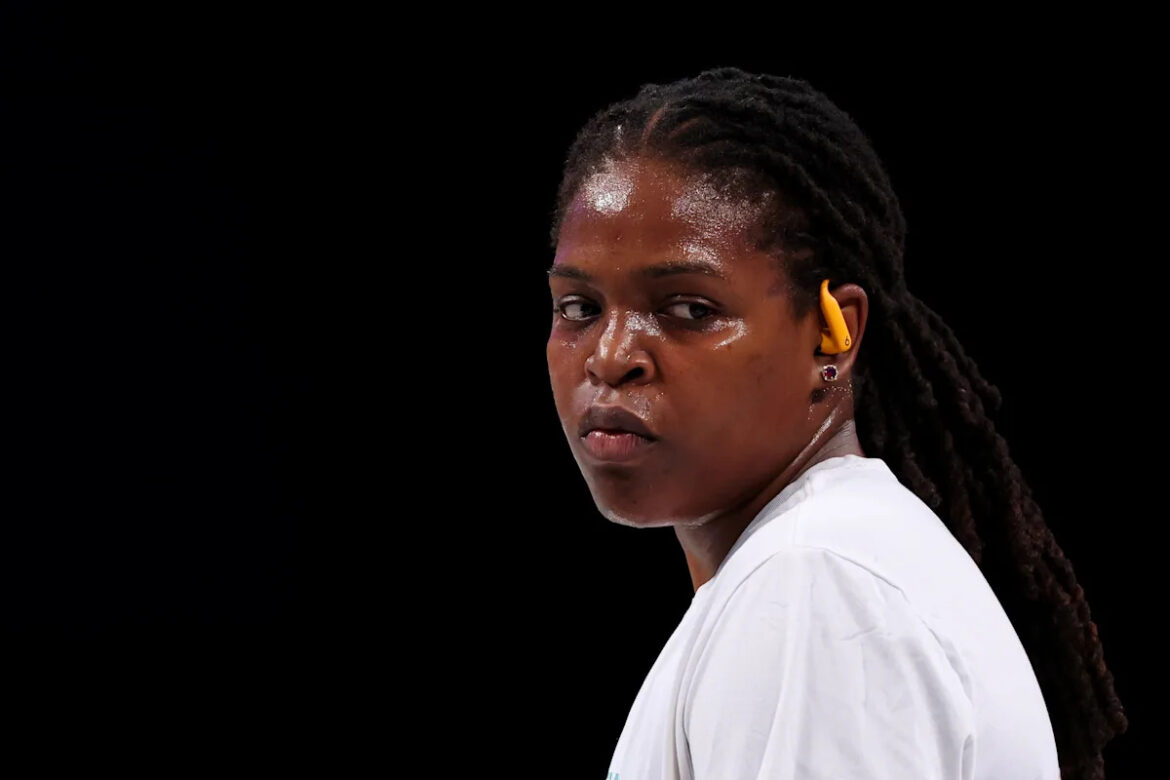Project B continues to stake it’s claim as a legitimate player in the women’s professional basketball landscape.
The New York Liberty’s Jonquel Jones and Las Vegas Aces’ Jewell Loyd are the latest WNBA stars that have announced their commitments to the league, following the Seattle Storm’s Nneka Ogwumike and Phoenix Mercury’s Alyssa Thomas.
Like Ogwumike and Thomas before them, Jones and Loyd own WNBA resumes that serve to substantiate the seriousness of Project. Jones is WNBA champion, Finals MVP and MVP, with five All-WNBA and All-Star selections. Loyd has three titles, three All-WNBA nods and six All-Star appearances to her name, along with a scoring title.
Advertisement
It will be interesting to see if any younger WNBA stars will sign with the league. Thus far, it appears that older stars—possibly seeing this as a short-term opportunity that will give them a final, deserved big pay, plus an equity stake that could accumulate value over time—have been most swayed by Project B’s pitch. When the league launches in the fall of 2026, Ogwumike will be 36 years old, Thomas will be 34, Loyd will be 33 and Jones will be 32. Some social media sleuthing, however, suggests that young players will eventually be announced.
Yet even as the league has promised to pay players what they’re worth, something that the WNBA is (slowly) trying to do, understandable skepticism has surrounded the league, particularly due to its partnership with Sela, an event group that is owned by the Saudi Public Investment Fund (PIF).
Advertisement
Alana Beard, Project B’s chief basketball officer, attempted to clarify Project B’s relationship with Sela during a conversation with Sarah Spain on Spain’s podcast, Good Game with Sarah Spain. Asked by Spain to address any incomplete or incorrect reporting about the Project B-Sela partnership, Beard began by emphasizing the ambitiousness of Project B, noting that to achieve its aims the league has to “sort of engage and partner with certain entities to get it done.” She continued:
We are a global basketball league, and it is our job and it is our intent to build out a cap table that mimics just that. Sela is a global operating partner that is owned by PIF. We’re paying them as a service to logistically produce our events.
Beard went on to say, “So we can speak about Sela, but the real story here is that we’re a global basketball league and it is our intent to partner with partners across the world.”
So, rather than the PIF, through Sela, investing in Project B, it seems like Project B, by using Sela, is instead sending money into the PIF?
Advertisement
Everything stills seems a bit unclear, with Beard’s employment of aspirational, Silicon Valley-inflected langue to talk about this grand and global women’s pro basketball league serving to obscure whether or not it is fair to question if Project B is participating in sportswashing.
The league seems to hope to big names, bigger salaries and good hoops will encourage fans to dig into what happens on the court, rather wade through an intentionally-complicated web of off-the-court relationships and investments.
Beard also said to Spain, “I think people are going to focus on what they’re going to focus on because it’s very hard for people to process something as ambitious as what we’re building.”
We’ll see what fans choose to focus on. For now, Project B is, certainly, conveying big ambitions.
